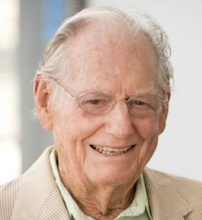A Quote by Sean M. Carroll
Something can be real - actually existing, not merely illusory - and yet not be fundamental. Scientists used to think that heat, for example, was a fluidlike substance called 'caloric' that flowed from hot objects to colder ones.
Related Quotes
All this care for the world, we must believe, is taken by the Gods without any act of will or labor. As bodies which possess some power produce their effects by merely existing: e.g. the sun gives light and heat by merely existing; so, and far more so, the providence of the Gods acts without effort to itself and for the good of the objects of its forethought. This solves the problems of the Epicureans , who argue that what is divine neither has trouble itself nor gives trouble to others.
(On the temperature of water in wells) The reason why the water in wells becomes colder in summer is that the earth is then rarefied by the heat, and releases into the air all the heat-particles it happens to have. So, the more the earth is drained of heat, the colder becomes the moisture that is concealed in the ground. On the other hand, when all the earth condenses and contracts and congeals with the cold, then, of course, as it contracts, it squeezes out into the wells whatever heat it holds.
The way I pictured it, all this grief would be like a winter night when you're standing outside. You'll warm up once you get used to the cold. Except after you've been out there for awhile, you feel the warmth draining out of you and you realize the opposite is happening; you're getting colder and colder, as the body heat you brought outside with you seeps out of your skin. Instead of getting used to it, you get weaker the longer you endure it.
Philosophers often think all scientists must be scientific realists. If you ask a simple question like "Are electrons real?" the answer will be "Yes". But if your questions are less superficial, for example whether some well-known scientist was a good scientist. Then, they had insisted that only empirical criteria matter and that they actually did not believe in the reality of sub-atomic entities. Ask "If that turned out to be true, would you still say they were good scientists?" The answer would reveal something about how they themselves understood what it is to be a scientist.
You should not use your fireplace, because scientists now believe that, contrary to popular opinion, fireplaces actually remove heat from houses. Really, that's what scientists believe. In fact many scientists actually use their fireplaces to cool their houses in the summer. If you visit a scientist's house on a sultry August day, you'll find a cheerful fire roaring on the hearth and the scientist sitting nearby, remarking on how cool he is and drinking heavily.
Ah, to build, to build! That is the noblest art of all the arts. Painting and sculpture are but images, Are merely shadows cast by outward things On stone or canvas, having in themselves No separate existence. Architecture, Existing in itself, and not in seeming A something it is not, surpasses them As substance shadow.
The physiological combustion theory takes as its starting point the fundamental principle that the amount of heat that arises from the combustion of a given substance is an invariable quantity-i.e., one independent of the circumstances accompanying the combustion-from which it is more specifically concluded that the chemical effect of the combustible materials undergoes no quantitative change even as a result of the vital process, or that the living organism, with all its mysteries and marvels, is not capable of generating heat out of nothing.
When objects are presented within the context of art (and until recently objects always have been used) they are as eligible for aesthetic consideration as are any objects in the world, and an aesthetic consideration of an object existing in the realm of art means that the object's existence or functioning in an art context is irrelevant to the aesthetic judgment.




































